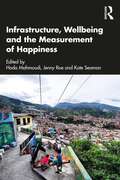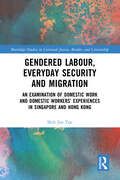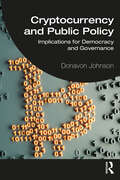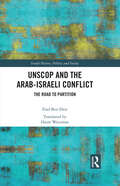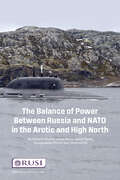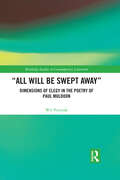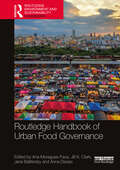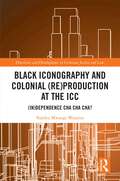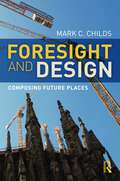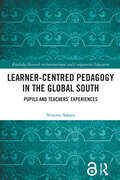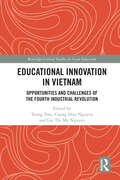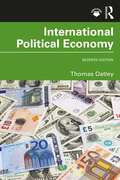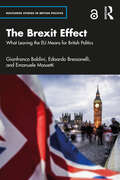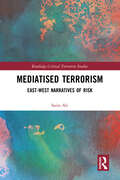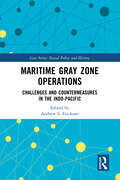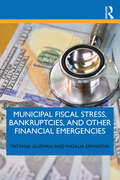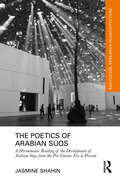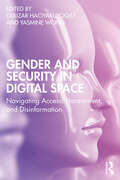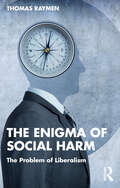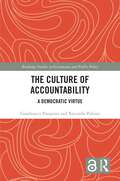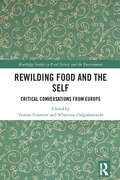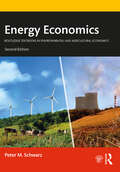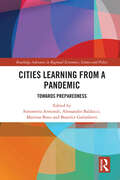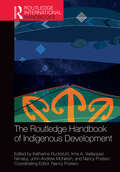- Table View
- List View
Infrastructure, Wellbeing and the Measurement of Happiness
by Roe Jenny Seaman Kate Mahmoudi HodaThis book takes an interdisciplinary approach to our understanding of infrastructure, and it’s influence on happiness and wellbeing, by examining the concept from economic, human development, architectural, urban planning, psychological, and ethical points of view. Providing insights from both research and practice the volume discusses how to develop happier cities and improve urban infrastructure for the wellbeing of the whole population. The book puts forth the argument that it is only in understanding the true nature of infrastructure’s reach – how it connects, supports, and enlivens human beings – that we can truly begin to understand infrastructure’s possibilities. It connects infrastructure to that most elusive of human qualities – happiness – examining the way infrastructure is fundamentally tied to human values and human well-being. The book seeks to suggest novel approaches, identify outmoded undertakings, and define new possibilities in order to maximize infrastructure’s impact for all people – with a focus on diversity, inclusion and equity. In seeking to define infrastructure broadly and examine its possibilities systematically this book brings together theory and evidence from multiple disciplinary perspectives including, sociology, urban studies, architecture, economics, and public health in order to advance a startling claim – that our lives, and the lives of others, can be substantively improved by greater adhesion to the principles and practices of infrastructure design for happiness and wellbeing.
Gendered Labour, Everyday Security and Migration: An Examination of Domestic Work and Domestic Workers’ Experiences in Singapore and Hong Kong (Routledge Studies in Criminal Justice, Borders and Citizenship)
by Shih Joo TanDrawing on original empirical research from Singapore and Hong Kong, Gendered Labour, Everyday Security and Migration interrogates women migrant domestic workers’ experiences of work and workplace exploitation. It examines the ways in which these women negotiate everyday security and safe work against the backdrop of affective employment relations and institutional structures of labour and migration law. It challenges the current emphasis on the language of exploitation and legal approaches to identifying, understanding and rectifying poor employment conditions for women migrant domestic workers. This book addresses the limited research literature that examines the extent to which regulatory or criminal justice responses are relevant to, and utilised by, women migrant domestic workers in their everyday negotiation of safe work and offers a unique contribution to the field. An accessible and compelling read, it will be of interest to researchers from across the fields of criminology, sociology, labour migration studies and women’s studies.
Cryptocurrency and Public Policy: Implications for Democracy and Governance
by Donavon JohnsonProponents of cryptocurrency have argued it has the potential to drive economic prosperity and to help reimagine social benefits in many spaces across the world. However, as the knowledge and use of cryptocurrency increases, so do questions about trust, identity, privacy, and security. This new book connects the literature on public policy and cryptocurrency, asking: What are the governance and democracy implications of the rise in cryptocurrency use? Beginning with a conceptual overview of cryptocurrency and how governmental actions (or inaction) led to its creation, author Donovan Johnson argues that symbiotic relationships can and do exist among cryptocurrency, democracy, and governance in the public policy/administration domain. Principles such as equity and inclusion, efficiency and effectiveness, accountability, and quality of life are explored as conduits through which cryptocurrency interfaces with public policy, democracy, and good governance. This informative and insightful book covers a range of public policy and public administration issues, offering readers an understanding of how cryptocurrency intersects with democracy, governance, fiscal and monetary policies, economic growth, corruption, and privacy. Cryptocurrency and Public Policy will be of interest to students and scholars of public policy and administration, finance, economics, and business.
The Effects of Rebel Parties on Governance, Democracy and Stability after Civil Wars: From Guns to Governing (Democratization and Autocratization Studies)
by John Ishiyama Gyda M. SindreThis book provides a systematic overview and in-depth analysis of the effects of rebel group inclusion on democracy following the end of conflict across the globe. It examines different types of rebel groups, addressing the subject matter through the lens of three dimensions – democracy, stability and governance – which structure the book and the individual chapters. As such, it affords a rare opportunity to bring together two heretofore separate research traditions – conflict studies and political parties. This book will be of key interest to scholars and students of political parties and party theory, civil wars and peacebuilding, democratization studies and state building and more broadly to comparative politics, development studies, and security studies.
UNSCOP and the Arab-Israeli Conflict: The Road to Partition (Israeli History, Politics and Society)
by Elad Ben-DrorThis book provides the first comprehensive account of the work of the United Nations Special Committee on Palestine (UNSCOP), constituted by the United Nations General Assembly in 1947 to study the situation in Palestine at the end of the British Mandate and make recommendations about its political future. Utilizing a wealth of archival documentation, some of it never before studied, Elad Ben-Dror explores the various aspects of UNSCOP’s activity to understand how they came to determine the fate of the country’s inhabitants. The book analyses the methods and motivations of the various members, with special attention given to the personal viewpoint of each member of the committee. Through this Ben-Dror shows that the partition recommendation emerged after a long process of study, debate, and compromise that was very much dependent on the characters and circumstances of the individual members of the committee. UNSCOP and the Arab-Israeli Conflict will be a key text in understanding the role of UNSCOP in shaping the modern Middle East. It will be appropriate for scholars and students of political science, Palestine and Israeli history, the Arab-Israeli conflict, the UN and diplomacy, and conflict resolution.
The Balance of Power Between Russia and NATO in the Arctic and High North
by Sidharth Kausha James Byrne Joseph Byrne Giangiuseppe Pilli Gary SomervilleThe resurgence of Russian power in the Arctic and High North will be a key consideration for NATO planners. The Alliance’s northern flank represents both a potential vulnerability due to its relative isolation and an area in which NATO enjoys options for horizontal escalation in a conflict. Moreover, as the effects of climate change create opportunities for both navigation and resource extraction, peacetime control over the Northern Sea Route (NSR) and a contest to establish effective administrative control in this area are likely. Disagreements regarding the degree of Russia’s jurisdiction over the NSR could, for example, simmer into a form of sub-threshold competition. The purpose of this Whitehall Paper will be to examine the balance of power between NATO and Russia in this critical region in order to establish the level of ambition that the capabilities being developed by Russia can support.
“All Will Be Swept Away”: Dimensions of Elegy in the Poetry of Paul Muldoon (Routledge Studies in Contemporary Literature)
by Wit PietrzakThe book offers the first comprehensive study of Paul Muldoon’s mourning verse. Considering not only the celebrated elegies like "Yarrow," "Incantata" or "Sillyhow Stride" but also the elegiac impulse as it develops throughout Muldoon’s entire work, All Will Be Swept Away charts a large swathe of Muldoon’s poetic landscape in order to show the complexity with which he approaches the themes of death and mourning. Using archival material as well as a vast array of theoretical apparatuses, the book unveils the psychological, literary and political undertones in his poetry, all the while attending to the operations of the poetic text: its form, its music and its capacity to console, warn and censure.
Routledge Handbook of Urban Food Governance (Routledge Environment and Sustainability Handbooks)
by Ana Moragues-Faus Jill K. Clark Jane Battersby Anna DaviesThe Routledge Handbook of Urban Food Governance is the first collection to reflect on and compile the currently dispersed histories, concepts and practices involved in the increasingly popular field of urban food governance. Unpacking the power of urban food governance and its capacity to affect lives through the transformation of cities and the global food system, the Handbook is structured into five parts. The first part focuses on histories of urban food governance to trace the historical roots of current dynamics and provide an impetus for the critical lens on urban food governance threaded through the Handbook. The second part presents a broad overview of the different frames, theories and concepts that have informed urban food governance scholarship. Drawing on the previous parts, part three engages with the practice of urban food governance by analysing plans, policies and programmes implemented in different contexts. Part four presents current knowledge on how urban food governance involves different agencies that operate across scales and sectors. The final part asks key figures in this field what the future holds for urban food governance in the midst of pressing societal and environmental challenges. Containing chapters written by emerging and established scholars, as well as practitioners, the Handbook provides a state of the art, global and diverse examination of the role of cities in delivering sustainable and secure food outcomes, as well as providing refreshed theoretical and practical tools to understand and transform urban food governance to enact more sustainable and just futures. The Routledge Handbook of Urban Food Governance will be essential reading for students, scholars, practitioners and policymakers interested in food governance, urban studies, sustainable food and agriculture, and sustainable living more broadly.
Black Iconography and Colonial (re)production at the ICC: (In)dependence Cha Cha Cha?
by Stanley Mwangi WanjiruThis book explores the reproduction of colonialism at the International Criminal Court (ICC), and examines International criminal law (ICL) vs the Black body through an immersive format of Art, Music, Poetry, and Architecture and post-colonial/critical race theory lens. Taking a multi-disciplinary approach, the book interrogates the operationalization of the Rome statute to detail a Eurocentric hegemony at the core of ICL. It explores how colonialism and slavery have come to shape ICL, exposing the perpetuation of the colonial and warns that it heralds ominous contemporary and future implications for Africa. As currently envisaged and acted out at the ICC, this law is founded on deceptive and colonial ideas of ‘what is wrong’ in/with the world. The book finds that the contemporary ICL regime is founded on white supremacy that corrupts the law’s interaction with the African. The African is but a unit utilised by the global elite to exploit and extract. From time to time, these alliances disintegrate with ICL becoming a retaliatory tool of choice. What is at stake, is power, not justice. This power is hierarchical with Eurocentrism at the top throughout modern history. Colonialism is seen not to have ended but to have regerminated through the foundation of the ‘independent’ African state. The ICC reproduces the colonial by use of European law, and ultimately the over representation of the black accused. To conclude, the book provides a liberated African forum that can address conflicts in the content, with a call for the end of the ICC’s involvement in Africa. The demand is made for an African Court that utilises non-colonising African norms which are uniquely suited to address local conflicts. Multidisciplinary in nature, this book will be of great interest to students and scholars of International Criminal Law, Criminal Justice, Human Rights Law, African Studies, Global Social Justice, Sociology, Anthropology, Postcolonial Studies, and Philosophy.
Foresight and Design: Composing Future Places
by Mark C. ChildsEvery plan, pro-forma, design, building contract, and construction schedule is a proposal about future places. To help improve such proposals, Foresight and Design: Composing Future Places presents conceptual tools to inform design and outline the need for designers to rigorously think about potential futures. Our built compositions are constantly transforming due to continuing urbanization, demographic shifts, climate change, the evolution of virtual worlds, economic and health disparities, and other unforeseen trends. If we envision and plan for alternative futures, we are better able to purposefully respond. This book presents emerging practices of foresight, including signals of change, thick descriptions, pace layers, (re)framing, prototyping, scenarios, maps of change, storytelling, and world-building, to indicate how robust contemplation of multiple potential futures can help us compose places that are durable, resilient, and adaptable. Five brief case studies interspersed between the chapters serve as examples of practitioners exercising foresight through these practices. Contributions include a description of a regional design process in Afghanistan by Anthony Fettes of Sasaki Architects, and an exploration into the Indigenous Futurism model-making competition by Anjelica Gallegos. Written for architects, designers, planners, developers, city councilmembers, and engineers, this book encourages all composers of the built environment to envision alternative futures and purposefully respond.
Learner-Centred Pedagogy in the Global South: Pupils and Teachers’ Experiences (Routledge Research in International and Comparative Education)
by Nozomi SakataLearner-Centred Pedagogy in the Global South: Pupils and Teachers’ Experiences shines light on learner-centred pedagogy (LCP), which has gained popularity within global and national governments, albeit resulting in puzzling and inconsequential appropriation. Nozomi Sakata draws on award-winning research on learner centred pedagogy conducted in Tanzania that looks to shift the focus from teachers and teaching to students and learning. The recent spread of LCP through global policy discourse meets Tanzania’s historical and contemporary (in)compatibility in local schools. The book explores how pupils’ perceived classroom experiences are formed through pedagogical elements beyond the classroom. It also enquires into how observable LCP activities and/or pupils’ perceptions of classroom practices relate to their academic performance and learning attitudes. The book highlights the multidimensionality of pedagogy and the need to consider multiple viewpoints from both teachers and pupils and to consider the historical and socio-cultural contexts in any pedagogical research. This book will be of value to researchers and students interested in pedagogy, policy transfer and education reforms in the global South. The Chapters 5, 6 and 8 of this book are available for free in PDF format as Open Access from the individual product page at www.routledge.com. It has been made available under a Creative Commons Attribution-Non Commercial-No Derivatives 4.0 license.
Educational Innovation in Vietnam: Opportunities and Challenges of the Fourth Industrial Revolution (Routledge Critical Studies in Asian Education)
by Trung Tran Cuong Huu Nguyen Loc Thi My NguyenThis edited collection, one of the first to be written chiefly by Vietnamese scholars, explores innovation in Vietnamese education under the impact of the Fourth Industrial Revolution. Vietnam is considered a booming country with its continued economic rise, and the contributors explore one of Vietnam’s strategies to achieve further economic growth, which is the innovation – and modernization – of its education system. The content is split into two parts, the first focusing on innovations in educational policy and management and the second looking at innovation in teaching theories and methods. It shows the vitality and innovation coming from developing countries like Vietnam, where necessity breeds fast adoption of education technology and development. This insightful edited volume will help researchers in comparative education, educational development, and Asian studies understand the achievements and challenges of Vietnamese general education and higher education in the Fourth Industrial Revolution.
International Political Economy
by Thomas OatleyBroadly viewing the global economy as a political competition that produces winners and losers, International Political Economy holistically and accessibly introduces the field of IPE to students with limited background in political theory, history, and economics. This text surveys major interests and institutions and examines how state and non-state actors pursue wealth and power. Emphasizing fundamental economic concepts as well as the interplay between domestic and international politics, International Political Economy not only explains how the global economy works, it also encourages students to think critically about how economic policy is made in the context of globalization. New to the Seventh Edition Includes the disruptive impact of the pandemic on the global economy Includes discussion of climate change, the Green New Deal, and Green Industrial Policy Extended discussion of the impact of great power competition on the global economy and the role weaponized interdependence might play in this competition Considers the impact that Russia’s invasion of Ukraine will have on globalization Introduces full color format
The Brexit Effect: What Leaving the EU Means for British Politics
by Gianfranco Baldini Edoardo Bressanelli Emanuele MassettiThis book examines the seismic impact of Brexit on the British political system, assessing its likely long-term effect in terms of a significantly changed political and constitutional landscape. Starting with the 2015 general election and covering key developments up to "Brexit Day", it shows how Brexit "transformed" British politics. The unprecedented turmoil – two snap elections, three Prime Ministers, the biggest ever defeat for the Government in Parliament, an impressive number of rebellions and reshuffles in Cabinet and repeated requests for a second independence referendum in Scotland – as a result of leaving the EU, calls into question what sort of political system the post-Brexit UK will become. Taking Lijphart’s "Westminster model" as its reference, the book assesses the impact of Brexit along three dimensions: elections and parties; executive–legislative relationships; and the relationship between central and devolved administrations. Based on a wealth of empirical material, including original interviews with key policymakers and civil servants, it focuses on the "big picture" and analytically maps the direction of travel for the UK political system. This book will be of key interest to scholars and students of Brexit, British politics, constitutional, political, and contemporary history, elections and political parties, executive politics, and territorial politics as well as more broadly related practitioners and journalists.
Mediatised Terrorism: East-West Narratives of Risk (Routledge Critical Terrorism Studies)
by Saira AliThis book offers an East-West comparative analysis of mediatised terrorism. This is the first country-specific analysis of the mediatisation of terrorism, with Pakistan and Australia representing the two worlds, respectively. Caught up in the ‘9/11 effect’, Australia is known for its anti-terror ‘hyper-legislation’, despite the implausible nature of the threat. In contrast, Pakistan is plagued by terrorism, yet the military establishment favours a duplicitous policy of fighting militant groups selectively. To understand how the two diverse cultural sites, with their very different experiences of terrorism, make sense of this unpredictable threat, the book uses Beck’s World Risk Society theory as a conceptual framework to examine the production and construction of news narratives around the risk of terrorism in both countries through textual analysis of local news stories and in-depth interviews with Australian and Pakistani journalists. Narratives about ‘global terrorism’ are mostly ‘Western’, with fear of its impact on ‘Western’ democracy and civilisation. This book aims to fill the gap and present a nuanced understanding of global terrorism by examining the characteristics of the phenomenon in a Western as well as an Eastern location and the ways in which the risk of terrorism is being played out in the two worlds. This book will be of much interest to students of critical terrorism studies, media studies, Asia-Pacific politics, and International Relations.
Maritime Gray Zone Operations: Challenges and Countermeasures in the Indo-Pacific (Cass Series: Naval Policy and History)
by Andrew S. EricksonThis book addresses the issues raised by Chinese and North Korean maritime ‘gray zone’ activities in the Indo-Asia-Pacific region. For years, China has been harassing its neighbors in South China Sea and East China Sea, employing both coast guard and maritime militia forces, in the name of safeguarding Chinese sovereignty. This behavior is frequently characterized as constituting ‘gray zone’ activity. As the term suggests, this refers to a state of conflict that falls between peace and war. Interestingly, the Yellow Sea, which is geographically much closer to China than South China Sea or East China Sea, has been comparatively quiet. However, there is a danger that the PRC has the capability to replicate its gray zone activities in this area. Worse, North Korea has also been engaging in carefully-calibrated provocations there. This book addresses pressing questions about these activities and offers: (1) a conceptual framework to understand maritime gray zone operations and Beijing and Pyongyang’s approach, with an unprecedented focus on the Yellow Sea; (2) a comprehensive, fully updated fleet force structure for the PRC’s Coast Guard, together with projections regarding how the Coast Guard is likely to develop in the future; (3) an extensive organizational analysis of the PRC’s Maritime Militia that surveys the many units relevant to Yellow Sea operations, some revealed publicly for the first time; and (4) a detailed assessment of North Korean maritime ‘gray zone’ activities. This book will be of great interest to students of naval strategy, maritime security, Asian politics, and international security.
Municipal Fiscal Stress, Bankruptcies, and Other Financial Emergencies
by Tatyana Guzman Natalia ErmasovaIt is difficult to find someone who has not heard about the Puerto Rico, Detroit, Michigan, or Orange County, California, bankruptcies. While guides for responsibly managing government finances exist, problems often originate not because of poor financial reporting or financial deficiencies but because issues external to financial wellbeing arise, such as economic, demographic, political, legal, or even environmental factors. Exacerbating the problem, there is not much advice in the existing literature on how to act when municipalities face financial struggles. Filling this important gap, this book explores fiscal health and fiscal hardships, municipal defaults and bankruptcies, and many other aspects to help guide local governments during fiscal distress. Fiscal hardships negatively affect the quality and availability of public goods and services and, consequently, the wellbeing of residents and businesses living and working in distressed municipalities. Turned off streetlights, unmaintained public parks, potholes, inconsistent garbage pickup, longer response time from emergency services, and multiple other issues that residents of the struggling municipalities deal with, lead to higher crime rates, lower quality of K-12 education, dangerous road conditions, lower housing values, outmigration of wealthier population, and numerous other problems. The COVID-19 pandemic put additional unprecedented pressure on municipal finances nationwide. In this book authors Tatyana Guzman and Natalia Ermasova evaluate distressed cities and municipalities and provide practical recommendations on improving their financial conditions. What are conditions and signs to look for to not to find yourself in similar situations? What can be done if your municipality is already experiencing fiscal hardships? What are the consequences of fiscal misfortunes? How does one exit a fiscal emergency? This book answers these and other questions and serves as a guide to fiscal health and prosperity for U.S. municipal governments, students and researchers in public finance, and general public management fields.
The Poetics of Arabian Sūqs: A Hermeneutic Reading of the Development of Arabian Sūqs from the Pre-Islamic Era to Present (Routledge Research in Architecture)
by Jasmine ShahinThis book investigates the history of Arabian sūqs from their pre-Islamic beginnings to the present. Collecting evidence from archaeological ruins, Islamic towns, modern cities, Arabic poetry, philosophical debates, political conflicts, puppet shows and the insights of modern-day market-goers, the book presents new and unforeseen interpretations of the Arabian sūq’s meaning and its transformation through time and place. The finding that such meaning is tied to ancient trade rituals, where temple and market presented a holistic socio-urban unit, re-questions some instrumental assumptions regarding the value of sūq-ness in Arabia’s everyday practices. Such a finding, which locates the fadaā/tareeq duality as a central theme in Arabia’s socio-urban discourse, emphasizes the importance of lived experiences and poetics as key sources for understanding socio-urban phenomena.
Gender and Security in Digital Space: Navigating Access, Harassment, and Disinformation
by Gulizar Haciyakupoglu Yasmine WongDigital space offers new avenues, opportunities, and platforms in the fight for gender equality, and for the social, economic, and political participation of women and marginalised communities. However, the very same space plays host to gender inequalities and security threats with gendered implications. This edited volume ventures into complexities at the intersection of gender, security, and digital space, with a particular focus on the persistent problems of access, harassment, and disinformation. Scholars and practitioners in this volume tackle various facets of the issue, presenting an array of research, experiences, and case studies that span the globe. This knowledge lends itself to potential policy considerations in tackling inequalities and threats with gendered implications in cyber space towards digital spaces that are safe and equal. This book is a must-read for students, scholars, and practitioners seeking to expand their knowledge on the gendered threats in digital space and potential remedies against them.
The Enigma of Social Harm: The Problem of Liberalism
by Thomas RaymenDrawing on a novel blend of moral philosophy, social science, psychoanalytic theory and continental philosophy, this book offers up a diagnosis of contemporary liberal capitalist society and the increasingly febrile culture we occupy when it comes to matters of harm. On what basis can we say that something is harmful? How are we supposed to judge between competing opinions on the harmfulness of a particular behaviour, practice, or industry? Can we avoid drifting off into relativism when it comes to judgements about harm? In an age of deep cultural and political discord about what is and is not harmful, providing answers to such questions is more important than ever. Appraising the current state of the concept of social harm in academic scholarship and every-day life, Thomas Raymen finds a concept in an underdeveloped state of disorder, trapped in interminable deadlocks and shrill disagreements about what should and should not be considered harmful. To explain the genesis of this conceptual crisis and identify what we need to do to resolve it, The Enigma of Social Harm travels from Graeco-Roman antiquity to the present day, exploring trends and developments in moral and political philosophy, religion, law, political economy, and culture. Along the way, we see how such trends and developments have not only made it more difficult to establish a shared basis for evaluating harm, but that the tools which might enable us to do so are now outright prohibited by the political-economic, cultural, and ethical ideology of liberalism that dominates contemporary society. Written in a clear and accessible style, it is essential reading for all those interested in matters of social harm, justice, politics, and ethics.
The Culture of Accountability: A Democratic Virtue (Routledge Studies in Governance and Public Policy)
by Gianfranco Pasquino Riccardo PelizzoThis important book explores the cultural conditions that favour political accountability. It examines the channels through which accountability can be secured and the role that accountability plays in ensuring good governance. In addition to problematizing the notion of accountability, the book suggests that it is the product of three different—albeit, related—processes: taking account of voters’ preferences, keeping account of voters’ preferences, and giving account of one’s performance in office. It further explores the relationship between accountability and political culture by analyzing the relationship between accountability and religion, religious denomination, familism, civicness, secularism and postmaterialism, revealing that the level of accountability is influenced by the diffusion of post-material values and by the level of civicness in a given country. This book will be of key interest to scholars, students, and practitioners in governance, the political economy of institutions and development, democracy, and more broadly to political science, international relations, political theory, comparative politics, sociology, and cultural studies.
Rewilding Food and the Self: Critical Conversations from Europe (Routledge Studies in Food, Society and the Environment)
by Tristan Fournier Sébastien DalgalarrondoThis volume contributes to the return to nature movement that is very much in vogue in contemporary European societies, by examining the place of food and eating in the "rewilding" process. It is divided into three parts, each of which consists of conversations between social scientists, with fieldwork collected from across Denmark, Finland, France, Italy, Norway and Switzerland. The first part focuses on the ways in which the hunter-gatherer livelihood has been transformed into a resilient, simpler and ecological way of life. It is dedicated to hunting and identifies the contexts in which large wild game meat is consumed and the reasons why such a product is still valued today. The second part shows how some practices that aim to reconnect with natural processes are developing within a market economy. Case studies on natural wine and fasting retreats help us to identify the promises that producers and promoters are relying on in order to disseminate them. Finally, the third part considers how this process of rewilding food is expressed in post-modernity. By focusing on two normative frameworks in which the rhetoric of the wild is mobilized although it is not expected to be in these terms – urbanity and the gender order – the goal is to understand the extent to which referring to the wild in food discourses and practices contributes to challenging our identities, and to creating possible forms of emancipation. This book will be of great interest to students and scholars interested in food cultures, human nature relationships, and sustainable diets.
Energy Economics (Routledge Textbooks in Environmental and Agricultural Economics)
by Peter M. SchwarzEnergy Economics outlines the fundamental issues and possible solutions to the challenges of energy production and use, presenting a framework for decisions based upon sound economic analysis. This approach considers market forces and policy goals, including economic prosperity, environmental protection, and societal well-being. The second edition has been thoroughly updated, addressing dramatic shifts in the use of fuel and electricity, accelerated plans for the use of renewable energy, and pathways towards a lower-carbon future. A new chapter on electric vehicles examines its impact on transportation, the electricity market, and carbon emissions. Global examples throughout the book reflect the universal application of energy economics. With this economic foundation, coupled with perspectives from real-world applications, and perspectives from related disciplines, this text sharpens the student’s ability to understand, evaluate, and critique energy policy. A companion website provides reinforcement for students through multiple choice self-test quizzes and homework exercises, as well as additional materials for instructors. This textbook should be essential reading for students of energy economics, environmental and natural resource economics, energy-related disciplines, and general readers seeking to expand their knowledge of energy economics and policy.
Cities Learning from a Pandemic: Towards Preparedness (Routledge Advances in Regional Economics, Science and Policy)
by Simonetta Armondi Alessandro Balducci Martina Bovo Beatrice GalimbertiCOVID-19 has stressed the condition of radical uncertainty that increasingly characterises our times and compels cities to learn new ways to cope with unexpected global urban challenges. The volume proposes preparedness as a key concept in urban geography, planning, and policy, inviting international scholars to discuss its pros and cons. Firstly, it builds a critical theoretical framework around the concept of preparedness in relation to the COVID-19 effects and other interconnected crises. Then, the authors put at work and redefine preparedness, starting from worldwide surveys, research experiences, public discourses and spatial strategies analysis in Europe and, more extensively, in Italy. Finally, the closing section goes beyond the view of preparedness as an emergency tool, proposing to interpret it more broadly as a technology supporting a sustainable urban transition. The book mainly targets academics in urban planning, policy, and geography. However, the prominence of the topic of preparedness makes the volume an essential reading not only within social sciences but further in engineering, basic sciences, and life science. In addition, the book provides directions to practitioners and civic leaders in supporting cities and regions to prepare themselves in the face of pandemics and unpredictable socio-environmental shocks.
The Routledge Handbook of Indigenous Development (Routledge International Handbooks)
by Katharina Ruckstuhl Irma A. Velásquez Nimatuj John-Andrew McNeish Nancy PosteroThis Handbook inverts the lens on development, asking what Indigenous communities across the globe hope and build for themselves. In contrast to earlier writing on development, this volume focuses on Indigenous peoples as inspiring theorists and potent political actors who resist the ongoing destruction of their livelihoods. To foster their own visions of development, they look from the present back to Indigenous pasts and forward to Indigenous futures. Key questions: How do Indigenous theories of justice, sovereignty, and relations between humans and non-humans inform their understandings of development? How have Indigenous people used Rights of Nature, legal pluralism, and global governance systems to push for their visions? How do Indigenous relations with the Earth inform their struggles against natural resource extraction? How have native peoples negotiated the dangers and benefits of capitalism to foster their own life projects? How do Indigenous peoples in diaspora and in cities around the world contribute to Indigenous futures? How can Indigenous intellectuals, artists, and scientists control their intellectual property and knowledge systems and bring into being meaningful collective life projects? The book is intended for Indigenous and non-Indigenous activists, communities, scholars, and students. It provides a guide to current thinking across the disciplines that converge in the study of development, including geography, anthropology, environmental studies, development studies, political science, and Indigenous studies.
